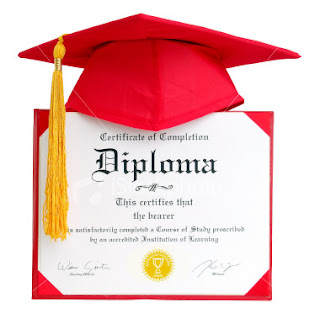What some might refer to as teacher improvement, others might call a “waste of time.” It all depends on how you feel about the value of an advanced degree. In a recent issue of the Teacher PD Sourcebook, the effectiveness of teachers earning master’s degrees was evaluated on a strictly data level. The results are as follows:
“Contextual data collected in connection with the National Assessment of Educational Progress show that, in every year since 2005, students whose teachers hold master's degrees have scored higher on the NAEP math and reading exams than those whose teachers have only bachelor's degrees (see graphs).”
If educators all across the world are striving to increase student achievement and raise test scores, then this study would suggest that teachers getting master’s degrees equals teacher improvement, which, in turn, equals student improvement.
Teacher improvement obviously involves much more than getting a master’s degree, and we all know that some of our most effective teachers didn’t have advanced degrees. But the statistics imply that teachers can improve their academic impact in the classroom with more education. One idea these data don’t account for is those who seek more education, but not in a formal setting of a classroom.
Teacher improvement could consist of reading the latest book on proven classroom management tools. It is also as simple as following a blog about effective teaching strategies. Even Twitter and other social media platforms are becoming a large vein of information for educators across the world.
So we see that there are myriad places to glean more information, more strategies, and more PLCs, but can these platforms match the rigor and depth associated with earning a master’s degree?
On one side of the argument, one could say that a degree is just a piece of paper associate with outdated data and worn out classroom strategies. A 10-year-old degree, theoretically, does not help teachers stay up-to-date with the trends, needs, and unique situations found in individual classrooms. The other side of the argument is that no blog post can provide the depth of understanding that comes with graduate course work.
To those of you who have received a master’s degree and to those who have not, do you think a master’s degree equals teacher improvement? Does it greatly affect student achievement? And if it does, what is it that about a master’s degree that makes the difference?


Fellowship will be the launching pad to the rest of your career, and as such, fellowship personal statements should focus on the future as opposed to what you have already accomplished. See more personal statement masters
ReplyDelete